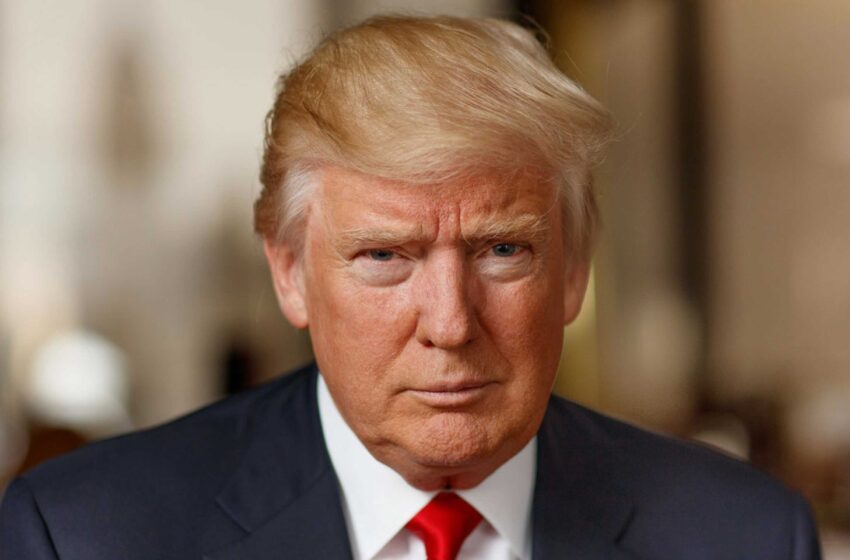What is Antifa and why is Trump designating it a terrorist organization?

Donald Trump. Picture: David Hume Kennerly/Getty Images
President Donald Trump announced this week that his administration is preparing to designate Antifa, a loosely organized anti-fascist movement, as a major terrorist organization. Speaking at a White House briefing, Trump argued that Antifa poses a threat to national security, accusing the movement of inciting violence during protests and undermining law and order.
The announcement immediately reignited debate over Antifa’s role in U.S. politics and whether such a designation has legal grounds. While Trump framed the decision as essential to protecting Americans, critics argue it could be an attempt to silence dissent and blur the lines between activism and terrorism.
What is Antifa?
Antifa, short for anti-fascist, is not a single group but rather a network of activists and organizations united by opposition to far-right ideologies. It gained significant visibility after the 2017 Charlottesville rally, where counter-protesters, some identifying with Antifa, clashed with white supremacists.
Members often operate without a centralized structure, engaging in direct action ranging from protests and counter-rallies to confronting extremist groups. Supporters describe it as a grassroots defense against authoritarianism and hate movements. Critics, however, view Antifa tactics, such as property damage or confrontational protests, as violent and extreme.
Why is Trump Targeting Antifa Now?
The move comes amid growing political polarization and frequent clashes at demonstrations nationwide. Trump has long blamed Antifa for violent incidents during protests, though law enforcement investigations have often found that violence is not limited to one side.
According to the administration, labeling Antifa a terrorist group would provide broader powers for surveillance, asset freezes, and prosecution. Trump’s critics argue that such a step could set a dangerous precedent by applying counterterrorism laws to domestic political movements.
Legal and Political Challenges Ahead
Unlike foreign terrorist organizations, domestic groups cannot formally be designated as terrorists under U.S. law. Legal experts note that Trump’s move may be more symbolic than enforceable, given constitutional protections on free speech and assembly.
Civil liberties groups, including the ACLU, have warned that the designation could be misused against peaceful protesters or activists critical of the government. Several Democratic lawmakers echoed those concerns, accusing the administration of weaponizing national security laws for political gain.
READ ALSO
What is the deportation order’s legal basis in Mahmoud Khalil’s case? Is he guilty?
Why Rand Paul clashed with Susan Monarez over infant vaccines and vaccine policy at the CDC
Global and Domestic Reactions
Internationally, the announcement drew mixed reactions. Some European leaders criticized the U.S. for targeting a broad ideological label rather than specific violent actors. Domestically, Republican allies praised Trump’s stance as tough on extremism, while Democrats condemned it as authoritarian overreach.
With the 2026 election season looming, analysts suggest the designation could become a key wedge issue, framing debates over free speech, public safety, and the limits of government power.
What Happens Next?
The Justice Department is expected to outline how the designation would be implemented, though significant legal obstacles remain. Activists predict the announcement could energize Antifa supporters and trigger more confrontations at rallies.
Whether or not the designation stands up in court, Trump’s announcement has already escalated the political battle over protest movements, security, and dissent in America.
Frequently Asked Questions (FAQ)
What is Antifa?
Antifa is short for “anti-fascist.” It is not a single group but a loosely connected movement of activists who oppose far-right ideologies, white supremacy, and authoritarianism.
Why is Trump calling Antifa a terrorist organization?
Trump argues that Antifa fuels violence during protests and poses a threat to national security. He says the designation will give authorities more tools to curb extremism.
Can the U.S. legally designate Antifa as a terrorist group?
Under U.S. law, only foreign organizations can be formally designated as terrorist groups. Legal experts say Trump’s plan faces major constitutional hurdles.
What does Antifa believe?
Antifa activists advocate for direct action against fascism, racism, and far-right extremism. Supporters see it as a defense against hate movements, while critics say its tactics cross into violence.
Has Antifa been linked to violence?
While some Antifa protests have involved vandalism or confrontations, investigations show violence at demonstrations often comes from multiple groups, not just Antifa.
What happens if Antifa is designated a terrorist group?
The Justice Department could try to expand surveillance, asset seizures, and prosecutions. However, civil liberties groups warn the move may target peaceful protesters and face legal challenges.
Why is Antifa controversial in U.S. politics?
Supporters view it as a necessary check on extremist movements, while opponents say it undermines law and order. The debate reflects deeper polarization over free speech and security.

